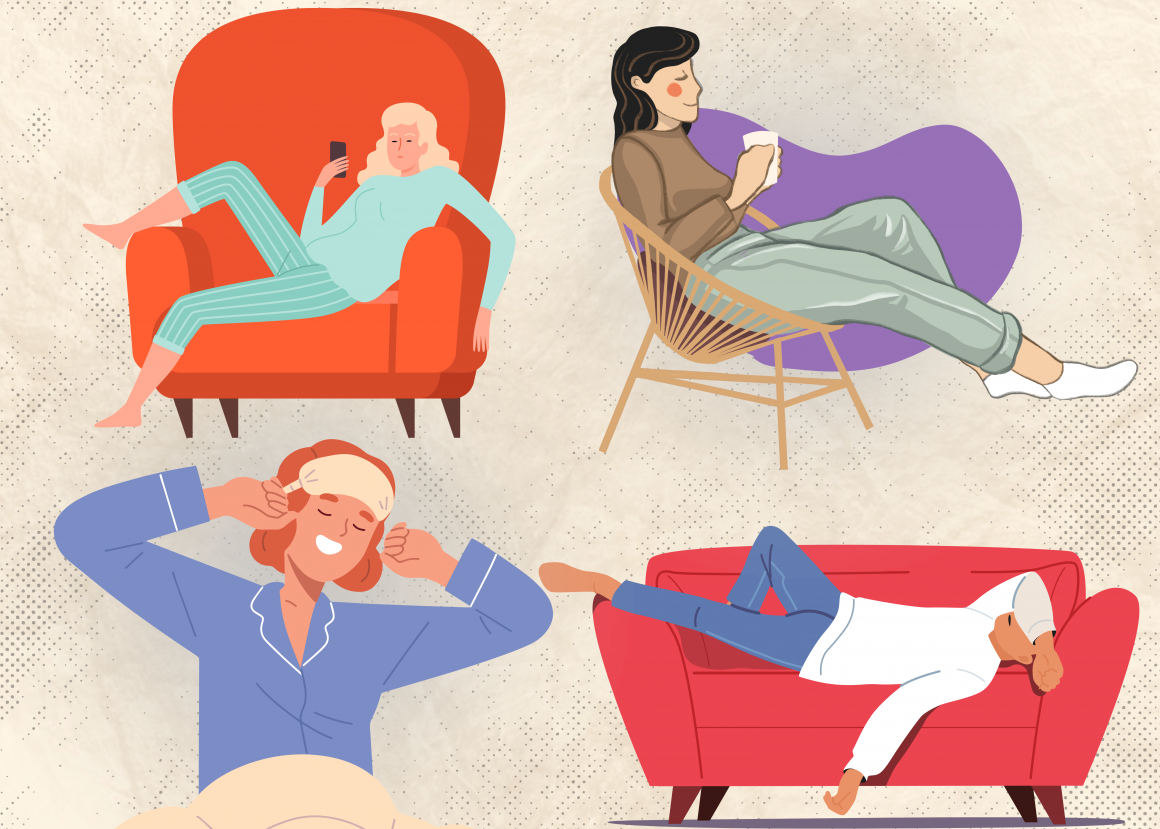
Shifting the narrative around laziness: The value of rest and leisure
By Sweta Babladi, May 5 2024—
While people have different views on what constitutes laziness – refusal to go above what is required, not using leisure time to pick up a new hobby or an alternate source of income, or taking the easier way out of a problem – it is certain that on a collective level, laziness is not simply frowned upon. It is seen as an ethical failure.
Even before the industrial revolution, laziness had been considered to be a grave sin from a religious standpoint and a serious character flaw from a literary perspective. Whether it is in the Bible or in medieval literature such as Dante’s “Divine Comedy” (ca.1390), a strong work ethic and continual labor is rewarded while idleness is punished. Although there are instances of push back to the idea of unending labor as a virtue, such as in Paul Lafargue’s “The Right to Be Lazy” during the French Revolution, the idea that taking rest and leisure time is important continued to be controversial.
With such an extensive history behind it, the line between laziness and rest have become blurred to the point of becoming synonymous in the global West. For many people, the desire for rest is accompanied by immense guilt for doing so.
This guilt is all too familiar to anyone in the academic scene. For most students, even though they are aware that they need sleep, rest or time with loved ones, it becomes next to impossible to step away from the books because of the constant message we are sent: the time we spend idle could instead be used to climb another rung of the ladder that we are on from elementary school to retirement.
The shame that comes from being called “lazy” by others and more often by our own internal narrative has also been thoroughly exploited by corporations to generate more profit from their workers’ labor. Rather than going home after their shift ends, many people feel pressured to work past the hours that they are paid for to build a reputation as a hard worker, while those who refuse to do so are seen as lazy and uncaring about the success of their company.
None of this is to say that a strong work ethic is unnecessary or that personal and professional goals can be achieved without the appropriate amount of time and effort. There are a great number of people who take joy in their professional lives, and the willingness to dedicate hours to reach an academic or professional goal is admirable.
However, the idea that leisure time is an obstacle rather than an important facet of our day-to-day lives is harmful to our well being and has led many people to question what we are being sold under the guise of work ethic.
American sociologist and author Dr. Devon Price explored why we tend to see laziness as a moral failure in his book “Laziness Does Not Exist.” As a result of this shared value system, when an individual faces struggles such as poverty, substance use or depression, society is quick to dismiss their troubles as a result of laziness rather than the result of larger systemic issues such as unaffordability or class divisions.
The goal is to shift the current narrative around laziness.
Rather than framing the time we spend idle as “lost time,” it would be far more sustainable on both an individual and collective level to reframe it as a necessity to effectively achieve the work-life balance that many people are now seeking.
Spare time can be valuable in the quest to become more introspective and get to know ourselves better. It can serve as added inspiration for the work we do in our academic and professional lives. Many articles, podcasts and books even discuss boredom as a crucial step to crushing creative blocks; when we allow ourselves to be bored, that is when the mind has the space to be creative. Taking intentional breaks away from work without feeling guilty can help slow down a nervous system that is otherwise constantly overloaded with information and endless to-do lists. It is time that can train the mind to focus on one thing at a time, such as enjoying a meal without having a textbook open nearby or watching a movie without scrolling on TikTok at the same time.
Perhaps most importantly, enjoying leisure time rather than feeling guilty about resting is a gateway to building meaningful social connections with the people around us, which in turn provides support, inspiration, and companionship.
This article is a part of our Opinions section and does not necessarily reflect the views of the Gauntlet editorial board.
